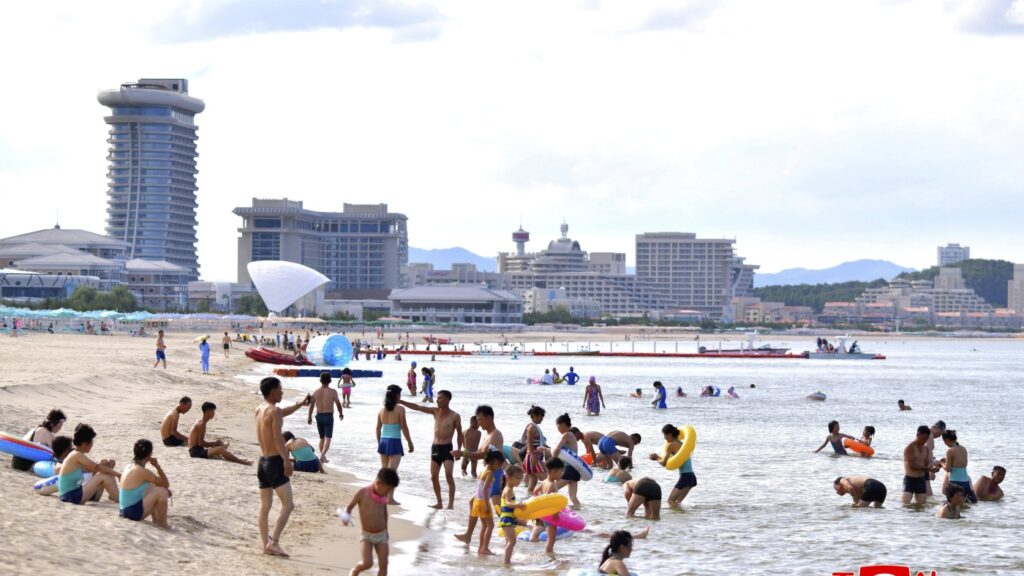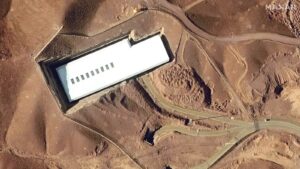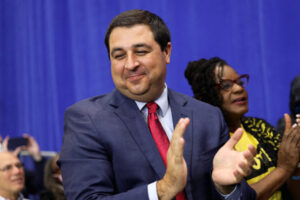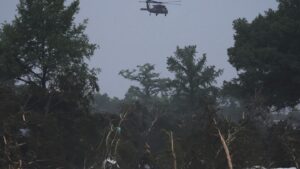
This photo provided on July 2, 2025, by the North Korean government, shows a beach resort in the Wonsan-Kalma eastern coastal tourist zone on July 1, 2025. (Korean Central News Agency/Korea News Service via AP)
North Korea has unveiled a new luxury beach resort in a bid to boost its tourism sector, despite the nation’s continued isolation from most of the world. The Wonsan Kalma Coastal Tourist Area, located on the eastern seacoast of North Korea, opened this week, marking a significant development in the country’s economic ambitions.
The resort stretches across a 2.5-mile beach on the Kalma Peninsula and features approximately 400 buildings, including high-rise hotels and villas that can accommodate around 20,000 guests. North Korean state media reports that the area also boasts a variety of amenities such as a water park, gym, concert hall, and department store.
Tourism as an Economic Strategy
The opening of the resort highlights North Korea’s dual focus on economic development alongside its military ambitions. Analysts suggest that Pyongyang is seeking economic prosperity without relinquishing its reclusive governance style. Kim Jong Un has long advocated for tourism as a means to bolster North Korea’s economy, which is heavily burdened by international sanctions.
Despite these ambitions, the country’s ongoing military activities and international isolation have hindered its tourism drive. The Kalma project, initially slated for completion in 2018, faced numerous delays due to sanctions and the COVID-19 pandemic.
Challenges and Limitations
While the resort has begun receiving domestic tourists, it remains uncertain whether it will attract the foreign visitors necessary to stimulate the economy. North Korea’s restrictions on freedom of movement and its widespread economic hardships, with an estimated 60% of its population living in poverty, pose significant challenges.
Moreover, North Korea has been hesitant to fully reopen its borders to foreign tourists. Earlier this year, a brief reopening to Western tourists was abruptly halted without explanation, and Chinese tourist groups, a major source of pre-pandemic visitors, have yet to return.
Russian Tourists: A Glimmer of Hope?
The only exception to the tourism pause has been Russian visitors. North Korea has increased exchanges with Russia since the two countries signed a mutual defense treaty in 2024. The first group of Russian tourists is expected to visit the new resort soon, following an invitation to the Russian Ambassador to North Korea, Aleksandr Matsegora, to attend the resort’s opening ceremony.
Fewer than 900 Russians traveled to North Korea for leisure in 2024, a stark contrast to the hundreds of thousands of Chinese tourists who visited annually before the pandemic.
However, experts like Lee Sangkeun from the Institute for National Security Strategy in Seoul remain skeptical. Lee notes that travelers from major Russian cities may not find North Korea an appealing destination due to the long journey and stringent restrictions on foreign visitors.
Future Prospects and Political Stability
Despite the challenges, Kim Jong Un remains optimistic about North Korea’s tourism potential. During the opening ceremony, he emphasized the “diverse and rich tourism resources and unique political stability and institutional durability” of the country. He also announced plans for additional large tourist resorts, inspired by the Kalma development.
North Korea’s tourism ambitions are part of a broader strategy to achieve economic growth while maintaining its political system. However, the success of these efforts will depend on the country’s ability to navigate international relations and address internal economic challenges.
As North Korea continues to balance its economic and military objectives, the world watches closely to see if the new resort will indeed become a “world destination” as envisioned by its leader.






